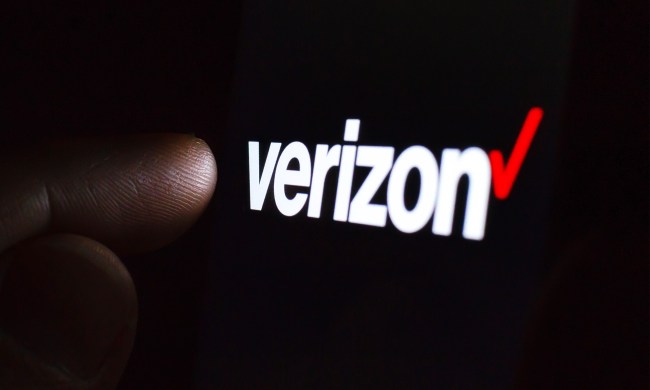
I’m sold. After watching T-Mobile transform itself from a pitiful also-ran chump to a legitimate cellular carrier over the last year, I’m ready to jump from “America’s largest and most reliable network” to the purple underdog.
T-Mobile dangled the final carrot earlier this week by giving all its subscribers free international texting and data access in 100 countries, and calling at 20 cents a minute. But that’s just icing on the cake. The carrier’s service is improving at an incredible pace, its phone selection has dramatically improved, its rate plans are cheaper than anyone else, and it’s the only carrier I’ve ever seen that announces new features and services designed to save subscribers money.
It all started when freshly minted CEO John Legere announced T-Mobile’s new “uncarrier” philosophy in last January. “It’s going to be about solving customers’ pain points,” he explained. “Customers who can’t stand opaque billing, lack of transparency, surprises, being locked in, lack of flexibility, lack of ability to control their own destiny, and being treated like second-class citizens because of the length of their terms of service.”
Legere is a jokester on stage, but he seemed sincere. I wanted to believe him – God knows we need a wireless carrier in the United States that puts customers first. But deep down, even though he was new to this industry, I thought he was full of hot air.
T-Mobile is worth the risk. It’s high speed LTE network isn’t as robust as Verizon’s yet, but it’s improving faster than anyone.
Then he made a real move. That day, Legere ended two-year contracts at T-Mobile and started charging people the actual price of their phone separate from their monthly bill. In one speech, he stopped participating in the deceptive practice of subsidized phone pricing, where carriers charge only $200 for phones up front, but build hundreds of dollars into your monthly phone bill and force you to stay with them for two years or pay hundreds of dollars.
In March, he eliminated another pain point: complicated rate plans. T-Mobile now has three Value Plans, which include unlimited talking, texting, and data use for between $50 and $70 a month, depending on how much 4G LTE data you want. There are no overages if you exceed your cap; your speed just gets throttled down to the carrier’s 2G network. He also promised an aggressive 4G LTE rollout plan that would catch T-Mobile up with AT&T and Verizon by the end of 2013. Finally, he said T-Mobile is finally getting the iPhone.
He also had some choice words for his competitors: “There’s not a goddamn person in the world besides a wireless industry person that would understand why the hell this mess works this way. The worst fear of the wireless industry is that somebody from outside Oz comes in and starts looking at [what they’re doing]. … Please, stop the bullshit.”
In July, Legere announced T-Mobile’s new ‘Jump’ plans, but these didn’t impress me as much. Subscribers can pay $10 more a month, for the ability to trade in their phone for a brand new one every six months. In reality, this is a clever way to reel in gadget freaks (like me) and sell monthly insurance for phones, and when it came out I called it a ripoff for regular people. I still don’t think it’s a good plan for anyone who isn’t dead serious about always having the latest hardware and too lazy to sell their old hardware themselves, but at least it’s an option anyone can decline.
Lame as it was, the other carriers’ copycat plans proved that even when T-Mobile sucks, it sucks less. AT&T’s Next and Verizon’s Edge plans basically double charge subscribers for the same upgrade privilege. Even when they’re conceding to T-Mobile, Verizon and AT&T found a way to overcharge users by hundreds of dollars.
On Wednesday, T-Mobile came roaring back when it completely eliminated texting and data charges in 100 countries around the world, including all of the big ones you will probably visit, and cut calling costs to 20 cents a minute. In contrast, Verizon will sell you 100MB of international data for $25 a month, or $20.50 per Megabyte (that is not an error) if you forget to sign up. Texting will cost you 50 cents per text (per recipient) and calling rates vary between $2 and $5 per minute, unless you subscribe to a $5-per-month plan that will cut the per-minute price by 20 percent. Don’t forget to cancel all these monthly charges or you’ll accidentally overpay for months – something Verizon is banking on. AT&T is no better.

While T-Mobile has been making moves to lure me over, Verizon has been giving me reasons to leave. It stopped offering unlimited data more than a year and a half ago, and now charges $20 more per month for an average user than it did last year. Because I want to hold onto my unlimited data, I can no longer get a subsidized phone at the end of my contract. And if I switch to Verizon’s new Share Everything plan, I will get unlimited talking and texting, but only 2GB of data. If I go over that limit, I will be charged $15 for each additional gigabyte. That will cost me $100 a month. On T-Mobile, if I go with 2.5GB a month, I would pay $60 and there would be no overages.
I’ve been with Verizon since 2009, with AT&T before that, and like many people, I was worried about coverage when I leave. But finally, I think T-Mobile is worth the risk. It’s high-speed LTE network isn’t as robust as Verizon’s yet, but it’s improving faster than anyone. It now claims to serve more than 200 million people, and Legere told reporters that its speeds will soon surpass AT&T’s in many areas. If you live anywhere near a larger town or city, you likely don’t have to worry about coverage from any of the big four carriers (though Sprint’s 4G rollout is slow). Verizon’s network is likely more reliable than anyone else’s, but T-Mobile now appears to be good enough, and it’s cheaper. (As always, make sure to see if you’re home/work has coverage before you consider a switch.) And since Verizon has 0 coverage outside the U.S. and T-Mobile now has a lot of it, that puts me over the edge.
By joining T-Mobile, I won’t have to argue with Verizon representatives about overages every few months; I won’t be locked into a two-year contract; I can travel anywhere without worrying about charges; my monthly bill will be almost halved; I can upgrade my phone more often if I choose; and, for once, my carrier may work for me, not just try to find ways to screw me out of more money. Somehow, when 5G LTE Advanced service comes online in the next year or two, I suspect Verizon will find a way to charge me $10 or $20 more for it. With T-Mobile, at least there’s a chance I’ll get a fair deal, and if not, at least I won’t be locked into a two-year contract. I can’t wait to see what John Legere has up his sleeve next.

